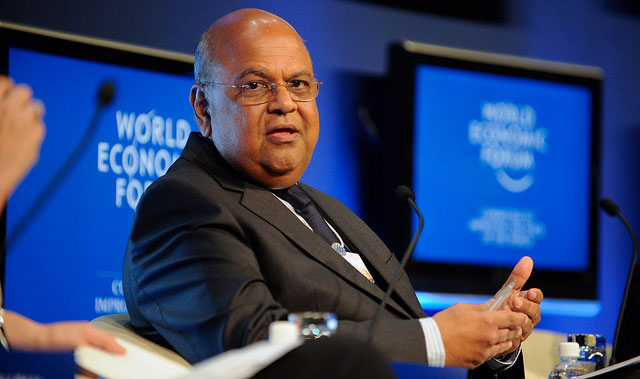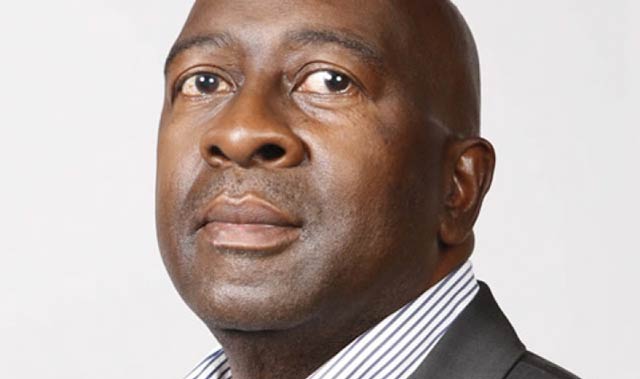
The relatively trivial nature of the charges against finance minister Pravin Gordhan, and the way in which the prosecution has been pursued, leads to the conclusion that this is a trumped up charge. It also suggests that Gordhan is being prosecuted for reasons unrelated to the law and order mandate of the body that has laid the charge, the National Prosecution Authority.
It is shockingly obvious that the only way to explain the charge against Gordhan and his two co-accused and the manner of its serving is malicious intent. The charges are widely viewed as an attempt to remove Gordhan from office without formally firing him, or to justify doing so soon.
These developments bode ill for South Africa. Because of the nature of events, including the circumstances of the firing of minister Nhlanhla Nene in December 2015, all reasonable observers will expect the quality of financial management to deteriorate in a post-Gordhan scenario. They will expect that the reason for Gordhan’s removal is to loosen controls over the country’s national treasury.
The expectation of most will be that the budget deficit will rise, unaffordable projects will be supported for bad reasons, state-owned enterprises that are under incompetent management will get more bailouts, guarantees or capital injections, and government finances will quickly deteriorate. Ratings will fall, funds will leave South Africa and the rand will grow even weaker. South Africans with assets will seek to move them abroad, and younger South Africans with marketable skills will look for jobs in countries with better prospects, including many in Africa.
Simply put: it will be a train smash.
But how did it get to this? What lies behind this latest attack on the finance minister?
Gordhan’s record
Gorhan has served two stints as finance minister — from 2009 to 2014, and then again when he was asked by President Jacob Zuma to return to the job in December last year after abandoning the disastrous appointment of Des van Rooyen.
When he first assumed office in May 2009, he faced the very difficult task of helping to lead South Africa out of a recession brought on, in part, by the global financial crisis. However, the constraints on him were not excessively severe at the time. The financial circumstances were strong. South Africa had run a budget surplus for two years in the financial years ending 2007 and 2008.
There were several reasons for the surpluses. One was that far better tax collection and management systems were developed by Gordhan and his team from the time of his appointment as deputy commissioner of the South African Revenue Service in 1998. Not only were the systems better, but the budgeting and spending policies and practices of then minister of finance, Trevor Manuel, gave South African taxpayers the confidence that their payments would be reasonably well used.
Moreover, growth and profit rates were higher than expected in the middle years of the 2000s. Manuel’s treasury steadily brought down the debt owed by treasury to the relatively low level of 28% of GDP in 2008.
In addition, South Africa’s banking system survived the global financial crisis better than many, partly due to good supervision by the Reserve Bank and the treasury and partly due to the relatively good margins, by global standards, they earned.

Strong finances meant that bold expansionary policies were possible in 2009 to countervail the crisis. South Africa confidently swung from a small budget surplus of 1,7% in 2008 to a small deficit of 1,1% in 2009 and a very large budget deficit of 6,6% in 2010.
The expectation remained that the global economic crisis was of limited duration and that South Africa’s economy would turn around when the rest of the world did. These expectations continued for several years and consecutive budget deficits of well over the unwritten guideline of 3% followed each other without great concern.
Gordhan and the treasury had a cushion of low debt in his first term as finance minister in 2009. However, in spite of prudent policies under his successor, finance minister Nhlanhla Nene, by 2016 government debt had risen to levels that had the ratings agencies doing their sums. Was it going to be greater than 50% of GDP? How much greater than 50% and for how long? Fifty percent had become the red line for budget deficits since the 1990s.
The latest budget review is forecasting gross government loan debt to GDP at 50,9% for the 2016/2017 financial year.
As a responsible government leader, Gordhan was obliged to continue down the fiscal consolidation path along which Nene resolutely marched. Fiscal consolidation means saying no more often. No to spending more, and no to guarantees being issued to spendthrift state-owned entities.
Unless the malicious prosecution is halted, South Africa’s economic performance will continue to be far poorer than it needs to be
Gordhan had other pressures to contend with, too. During his first term as finance minister the economy grew by 2,5% to 3,5%. This was lower than in the middle years of the 2000s when South Africa grew at an average of 5,5%/year. Although not optimal, the situation was still manageable. Suddenly, in 2015, the expectation fell to between 1% and 2% growth. Then, in 2016, the question was: would South Africa grow at all, and if it did, would growth be closer to 1% or to 0?
This massive deterioration in South Africa’s expectations derives from several factors. Firstly, the South Africa’s recession in 2009 was far worse and more damaging than many thought. Because the banks didn’t fail, some were sanguine, despite the fact that the country lost 8% of all jobs — more than a million of them.
South Africa’s crisis was particularly bad because it was hit by a double whammy. Like many developed countries, it suffered a consumer credit crunch — households were badly over-borrowed and had to cut back sharply when economic conditions tightened. And like many developing countries South Africa also suffered an export price and volume crunch — the prices and levels of demand for South Africa’s main exports fell sharply as slower growth affected economies around the world.
Secondly, levels of confidence fell to record low levels. One index fell to levels not seen since 1985. That was the year in which then Prime Minister PW Botha delivered what became known as his “Rubicon speech” that gutted business confidence and was to lead to his, and apartheid’s, downfall.
Similarly, 2016 has been a year of hopelessly flailing political leadership. South Africa’s economic growth performance has been much weaker than of many of its peers as well as many other developing countries. For example, while Africa’s performance has deteriorated, South Africa’s has got worse, quicker.
Unless the malicious prosecution is halted, South Africa’s economic performance will continue to be far poorer than it needs to be. Average per capita incomes may continue to decline in real terms for South Africans, as they have since last year. This will affect the poor most severely.![]()
- Alan Hirsch is professor and director of the Graduate School of Development Policy, University of Cape Town
- This article was originally published on The Conversation

